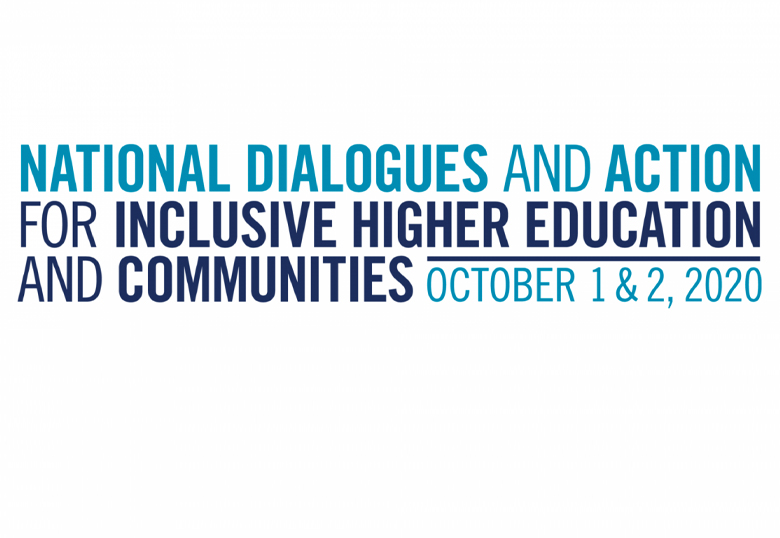The University of Lethbridge has joined the University of Toronto and Canadian universities and colleges across the country to facilitate a national conversation to develop concrete actions for change in higher education and in our communities.

The National Dialogues are a series of national forums focused on addressing equity and inclusion in Canadian post-secondary education.
“We are a diverse campus community, with students, faculty and staff from around the world,” says Dr. Mike Mahon, U of L president and vice-chancellor. “This diversity is one of our great strengths, benefitting all of our activities from teaching and research to campus life and community initiatives. We take the responsibility of providing a welcoming environment to all very seriously, and embrace the opportunity to further participate in a dialogue that demands greater diversity and inclusivity throughout the post-secondary system and in our communities as a whole.”
The first event in the National Dialogues series will focus on anti-Black racism and Black inclusion in higher education, and will take place on Thursday, Oct. 1 and Friday, Oct. 2 from 10 a.m. to 2 p.m. (MT). Faculty, staff, students and community members are invited to participate. Registration is free and available at utsc.livecast.ca.
This year’s Dialogues and Action will focus on sharing experiences and ideas, exploring and learning best practices, and contributing to the formulation and implementation of concrete actions that resolutely reject anti-black racism and drive meaningful, enduring black inclusion within individual universities and colleges; the higher education sector, in general; and our communities.
Over the course of the two days, participants will have the opportunity to choose from amongst nine interactive online dialogues with panelists from academia and beyond to address student, faculty and staff access and success; inclusive teaching, learning and curricula; inclusive decision-making structures; responsibilities and obligations of non-black peers; mentorship and more. The concurrent dialogues will explore the relevant issues considering the diverse and intersecting identities within the black community.
“The University will focus not only on the disadvantaged as the point of intervention. We will also concentrate our efforts on the structures and policies that disadvantage,” says Dr. Erasmus Okine, provost and vice-president (academic).
The outcome of the deliberations will inform the creation of a charter of principles and commitments, which will support the implementation of the actions identified, and help to sustain an enduring culture against anti-black racism and in support of black inclusion.
“These are extremely important conversations for the post-secondary sector and in our communities as a whole,” adds Mahon. “By taking part in these National Dialogues, we are committed to enacting meaningful change that will enhance diversity and inclusion at all levels of post-secondary education. We also see this as an opportunity to then bring this conversation forward, into our communities, as leaders of change for the betterment of all.”
